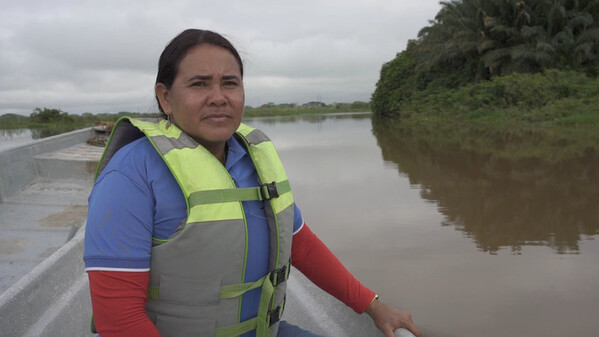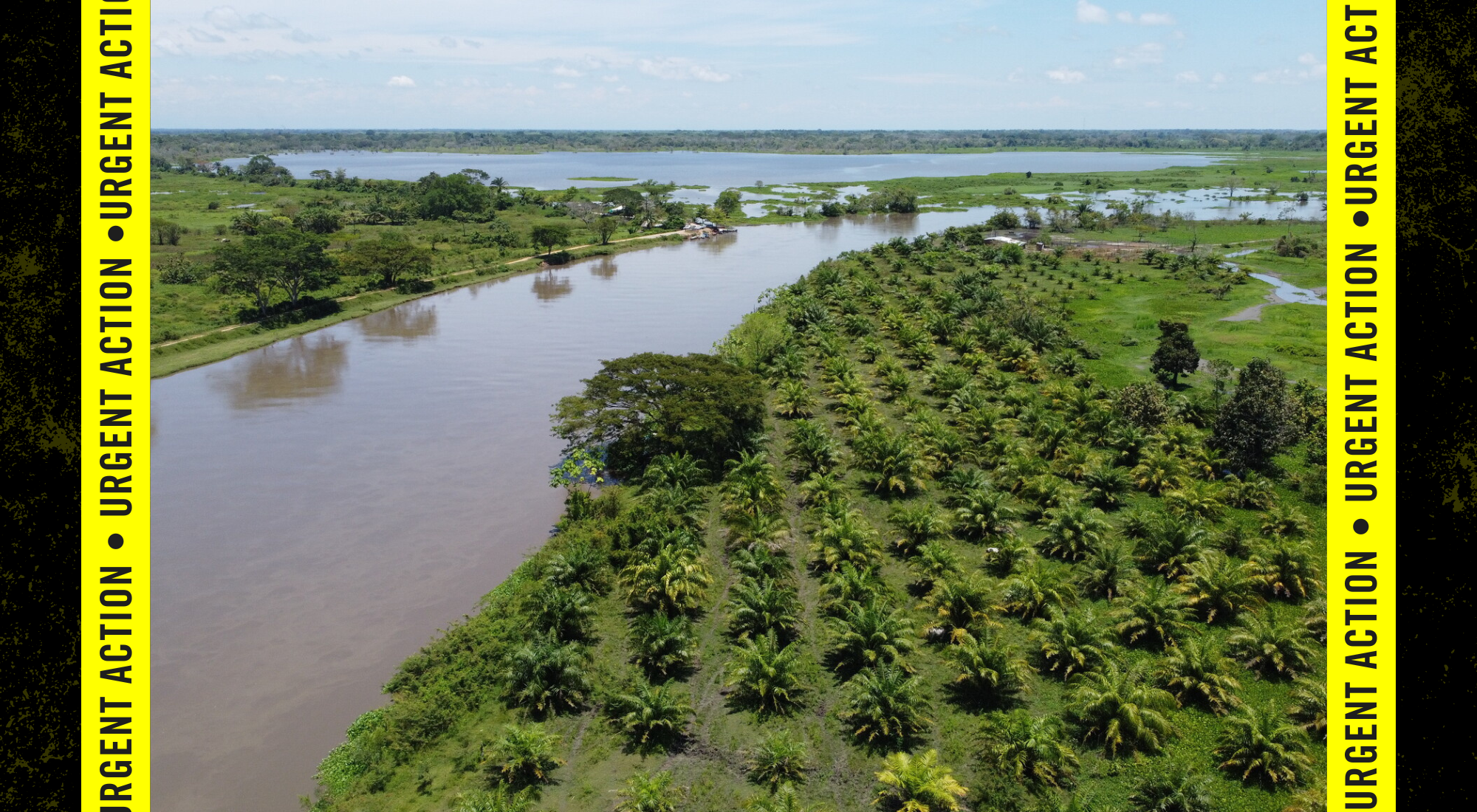On June 24, 26 fishing families living near the lakes and rivers around Barrancabermeja were forcibly displaced. They were moved to Bucaramanga, the capital of Santander department.
Back on February 15, the fishers’ association FEDEPESAN had raised the alarm. They warned that mass displacement was likely due to increasing threats. Armed groups had been harassing, threatening, robbing, and extorting them. There were also reports of attempted killings. These groups are trying to take control of the waterways or silence those who speak out against pollution and corruption harming the environment.
We urge Colombia’s National Unit for Victims to act now. They must ensure the safe, voluntary, and dignified return of these displaced fishers to their homes and waters.
Here’s what you can do:
Write to the Director of the Victims Unit urging him to:
- Take immediate and effective action to protect the forcibly displaced fisher families, including members of FEDEPESAN.
- Ensure their safe return to their territory and fishing activities.
- Plan, carry out, and assess all measures in consultation with the affected fishers, both women and men.
- Prioritize a human rights-based approach in all actions.
Write to:
Adith Rafael Romero Polanco
Director of the Unit for the Victims
Carrera 85D 46A-65
Bogotá DC, Colombia
E-mail: servicioalciudadano@unidadvictimas.gov.co
X: @ UnidadVictimas
Salutation: Dear Mr. Director,
And copy:
His Excellency Carlos Arturo Morales Lopez
Ambassador
Embassy of the Republic of Colombia
360 Albert Street, Suite 1002
Ottawa, ON K1R 7X7
Tel: (613) 230-3760 Fax: (613) 230-4416
Email: ecanada@cancilleria.gov.co
A region rich in resources and risk
The Magdalena Medio is a vast valley located between Colombia’s mountain ranges. It is crossed by the country’s main river, the Magdalena River. The region is rich in natural resources, especially oil and water. It is home to Colombia’s largest oil refinery in the city of Barrancabermeja, Santander. Other major industries include agriculture, mining, livestock, and tourism.
Because of its strategic location and valuable resources, the region has long been contested. Armed groups and the State have fought for territorial and political control. At least four armed groups are active in the area, including the Ejército Gaitanista de Colombia (EGC), also known as the AGC or Clan del Golfo, the largest armed group in the country.
This struggle for control has made the region extremely dangerous for civilians. Violence, especially against human rights defenders, has persisted since the 1980s. Many local unions, feminist groups, grassroots movements, and human rights organizations continue to resist and speak out despite the risks.

A local environmental defender under threat
The Federation of Artisanal, Environmentalist, and Tourist Fishers of the Department of Santander (FEDEPESAN) is based near Lake San Silvestre, close to Barrancabermeja. The group defends the rights of fisher communities and monitors water pollution caused by companies operating in the area. They have also reported the growing presence of armed groups trying to take over local waterways.
FEDEPESAN’s president, Yuly Velásquez, has faced serious threats due to her environmental activism. Amnesty International has documented multiple attacks against her. These include death threats in November 2020, gunshots fired at her home in January 2021, harassment during protests in August 2021, and two separate armed attacks in 2022. In one of those attacks, her bodyguard was injured.
Amnesty International issued an Urgent Action in June 2022 calling for better protection for Yuly. The Colombian government’s protection scheme, provided through the National Protection Unit (UNP), has been found inadequate for the level of risk she faces. In recognition of her courage and work, Yuly Velásquez received Amnesty International Germany’s 2024 Human Rights Award.
Repeated warnings, limited response
Since early 2024, Amnesty International has issued multiple Urgent Actions urging the Colombian government to investigate threats from the EGC. These threats have targeted both FEDEPESAN and the human rights organization CREDHOS, which supports their work locally.
In January and February 2025, FEDEPESAN members began receiving more threats, increasing fear within their community. On February 15, the organization made a public statement declaring that they felt forced to leave their territory with their families. Amnesty International then urged the National Police to step in, prevent displacement, and guarantee safety.
Beyond the immediate danger to families, a forced displacement would also harm their ability to carry out artisanal fishing and environmental monitoring of lakes and rivers in the region.
Forced displacement despite early warnings
Authorities had been made aware of the risks facing FEDEPESAN. For example, in 2022, Colombia’s Ombudsperson Office issued an early warning (AT 027), and the Ministry of Interior led follow-up meetings through the CIPRAT mechanism. Still, these warnings were not acted upon effectively.
As a result, on June 24, 2025, dozens of FEDEPESAN fishers and their families were forced to flee to Bucaramanga, the capital of Santander. They left their homes under pressure and fear, calling on national authorities to finally provide the protection they were promised.
Please take action as soon as possible until October 3, 2025. The UA will be duly updated should there be the need for further action.




























